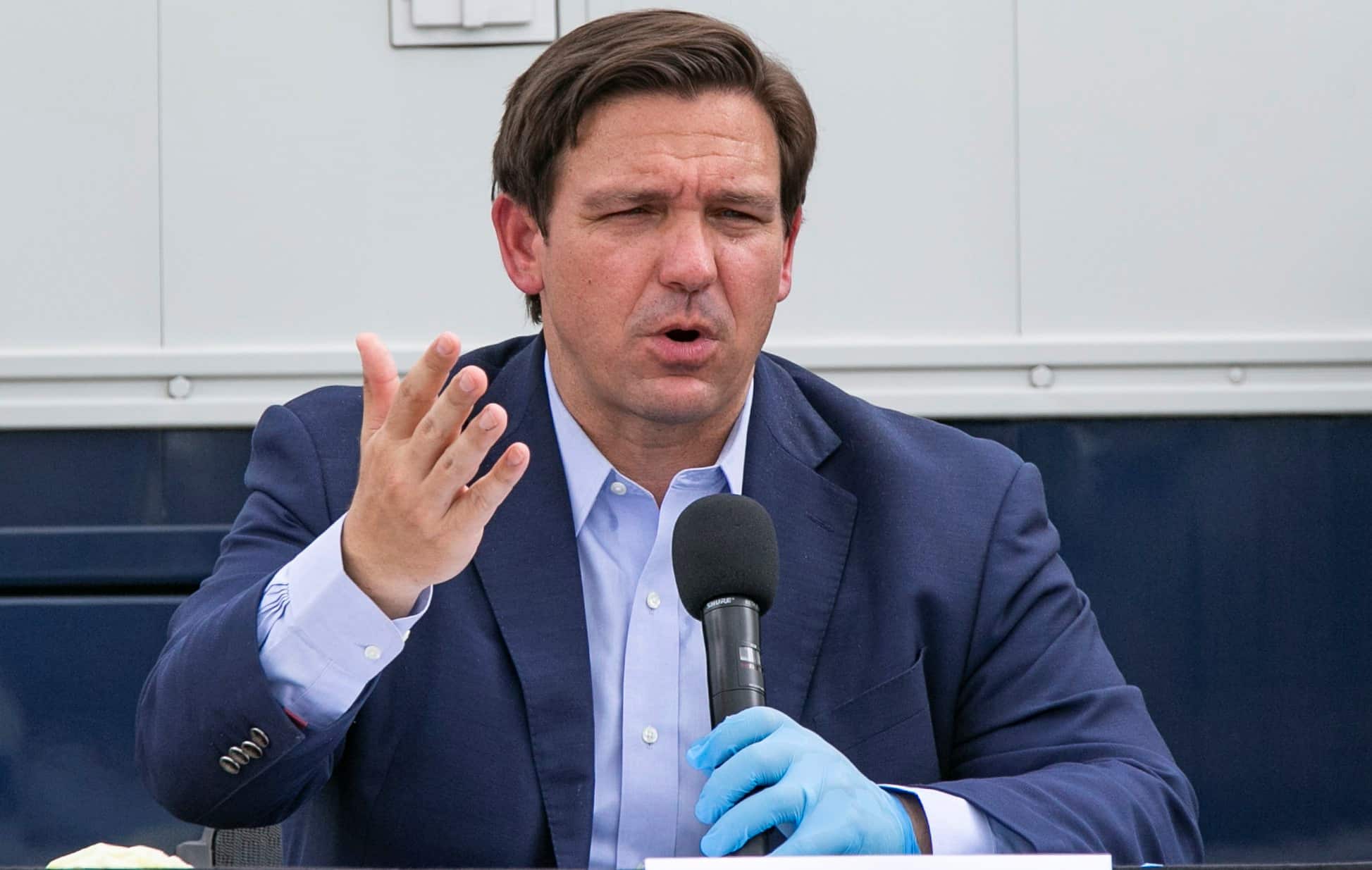Whatever happened to diversity of thought?
What happened to listening those who dissent — or at least allowing them space to do it — instead of censoring, and silencing, ideas out of hand?
Amid COVID-era censorship, these questions are ever-relevant.
Just ask Florida Gov. Ron DeSantis, whose month-old COVID-19 roundtable discussion with elite scientists was pulled from YouTube last week for allegedly “spreading misinformation.”
According to NBC News, the video “had been embedded in a Tampa-area TV station’s news story and its removal was flagged by the American Institute for Economic Research, a ‘free market’ think tank based in Great Barrington, Massachusetts.”
“YouTube has clear policies around COVID-19 medical misinformation to support the health and safety of our users,” YouTube spokeswoman Elena Hernandez said in a statement, according to NBC.
“We removed AIER’s video because it included content that contradicts the consensus of local and global health authorities regarding the efficacy of masks to prevent the spread of COVID-19.”
Of course, anyone who has used YouTube is fully aware of its incessant censorship. But going so far as to censor a video with an “incorrect” opinion that “contradicts the consensus of authorities”? That’s the essence of a totalitarian mindset.
What else could be censored under this umbrella?
According to NBC, Hernandez said YouTube will only allow content that otherwise violates the platform’s policies if it contains “educational, documentary, scientific or artistic context.”
But, yet again, these categories could have loose meanings.
If content bears the potential to “spread misinformation,” could this mean the content could be presented with the intent to inform, or rather to educate?
Does this mean that any information YouTube labels as being “incorrect” can be pulled?
Imagine if YouTube someday went as far as removing videos made by other medical professionals who offer a different opinion on any given topic whether it’s heart disease, diabetes, or a virus such as COVID-19.
Just like other Big Tech companies, it seems YouTube — owned by Google — isn’t focused on providing a platform that allows users to freely exchange ideas and allows viewers to come to their own conclusions.
Skepticism is the backbone of science.
Skepticism is often the path to discovery, meaning that those who ponder a question are often the first to find an answer to that question.
Imagine if scientists and medical professionals throughout history had remained content with the “science” of their time and never questioned enough to change any narratives.
Perhaps we would still be “bloodletting” patients to cure their illnesses. Maybe pregnant women would still be encouraged to smoke because it would “calm them down.”
Participating in the DeSantis roundtable were Dr. Scott Atlas, a radiologist who was a coronavirus adviser to former President Donald Trump; Dr. Jay Bhattacharya, a professor of Medicine at Stanford University and research associate at the National Bureau of Economic Research; Dr. Sunetra Gupta, an epidemiologist at Oxford University; and Dr. Martin Kulldorff, a biostatistician, epidemiologist and professor of medicine at Harvard Medical School.
According to a transcript of the roundtable published by AIER (the video is also available at the transcript link), the scientists questioned the efficiency of mask-wearing, particularly as it related to children and for those who have been inoculated with a COVID-19 vaccine.
They also questioned the lockdowns and school closures and slammed the idea of a “vaccine passport” and mandatory vaccination for those who have already had the coronavirus and fought it off.
“They’re actually damaging the trust in public health, leading to fewer vaccinations,” Kulldorff said.
In other words, the panel’s scientists questioned the liberal response to the coronovirus pandemic instead of genuflecting before it.
And for that, YouTube pulled the video.
Even as millions of Americans are getting the coronavirus vaccine, liberals are still pushing restrictions.
The narrative goes that, despite a vaccine, you should still wear a mask.
You should avoid travel to Canada even if you’re vaccinated since it’s possible to catch and spread Coronavirus variants.
The world waited anxiously for several months for a COVID-19 vaccine, believing an end to the days of quarantine and shutdown would soon to be in sight, only to hear more and more about variants.
Of course, regular citizens would question the mainstream COVID narrative in light of such developments. The best way to convince skeptics isn’t to censor the critics, but rather provide evidence to disprove their claims.
Then again, maybe we shouldn’t question too much. We might be censored too.
This article appeared originally on The Western Journal.
























